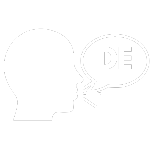Language
Khalyanw School of Foreign Languages
At Khalyanw German Educational Consultancy, we are dedicated to helping students and professionals overcome language barriers to access world-class education and opportunities in Germany. Our German Language Services offer expertly crafted courses aligned with the CEFR, guiding you from beginner (A1) to advanced (C2) levels. Whether you’re preparing for university admission, research, or career growth, mastering German is key to thriving academically and socially in Germany. We go beyond teaching language – we provide insights into German culture and traditions, ensuring you feel confident navigating both your studies and life in Germany. At Khalyanw, we’re your partner in building a successful future in Germany.
WHY
LEARN
GERMAN
Standing out from the crowd
Top universities like University College London include a foreign language GCSE or National 5 exam as a key requirement for admission. Employers are also increasingly prioritizing candidates with additional skills, such as proficiency in German, giving them a competitive edge
It’s not as hard as you think! German and English share a lot of similar words. Do some of the following ring any bells?
Whatever plans you may have for the future, knowing German can offer a range of skills that will increase your options both professionally and privately
Distinguish yourself by learning German and you’ll be the one to connect with millions of German speakers around the world.
SOME FACTS
Over 100 million people speak German worldwide, not just in Germany but also in countries like Austria, Switzerland, parts of France and Italy, Liechtenstein, Luxembourg, Denmark, and Belgium!

German is the most widely spoken language in Europe, with 18% of European Union residents speaking it as their native language, and 14% of all Europeans fluent in German as a second language. In many European countries like Poland, the Czech Republic, and Hungary, as well as tourist hotspots like Turkey, Spain, Italy, and Greece, German is commonly spoken.

German is the second most commonly used language on the internet after English. Additionally, Germany boasts the highest number of websites per capita globally

THE
LANGUAGE OF
EMPLOYMENT
Study and Work Opportunities in Germany
Germany offers a wide range of scholarships and financial support, making it an attractive destination for international students. Many are drawn to pursue their education at renowned German universities or take advantage of the country’s exceptional vocational and technical training programs
Science and Research
German is the second most widely used language in the scientific community. With over 25,000 scientists, Germany ranks as the third largest contributor to global research and development. The country also offers numerous research fellowships to attract international scientists
The Global Career Advantage
Proficiency in German opens up diverse job opportunities with both German and international companies, in the U.K. and worldwide. Mastering the language enhances your ability to contribute effectively to employers with global business ties.
SOME FACTS
18% of all books published in the world are in German. The German company Bertelsmann is the world’s largest book publisher, and the Frankfurter Book Fair is the world’s largest book fair

There are more than 480 music festivals in Germany each year, with the “Berlinale” being one of the most important international film festivals.
language after English.
Germany is home to 6,200 museums (630 of them art museums), 820 theatres (including musical theatres and opera houses), 130 professional orchestras, and 8,800 libraries
CULTURE
AND
HERITAGE
Better Understanding
German is one of the top ten most spoken languages globally, with the highest number of native speakers in the European Union. Each year, one-fifth of all book publications are in German. Learning German, therefore, provides greater access to information.
Additionally, it offers a glimpse into the unique ways of life, hopes, and dreams of people in German-speaking countries.
Literature, Theatre, and Philosophy
German is the language of renowned figures like Schiller, Goethe, Kafka, Kant, Hegel, and Brecht, among many others. Mastering German opens new horizons, enabling you to engage with and appreciate the rich cultures of German-speaking countries on a deeper level.
Music and Film
Understand the lyrics and meaning behind songs by the German punk rock band Die Toten Hosen, or immerse yourself in the operas of Wagner and Mozart—it’s far more enjoyable than reading subtitles.
Explore acclaimed films by legendary directors like Wim Wenders, Rainer Werner Fassbinder, and Volker Schlöndorff.
SOME FACTS
There are more than 100 million German speakers in the world, not only in Germany, but also in countries such as Austria, Switzerland, parts of France and Italy, Liechtenstein.

German is the most widely spoken language in Europe. 18% of European Union residents speak German as their native language and 14% of all Europeans can speak German as a second language. In many European countries like Poland, the Czech Republic or Hungary and in tourist centres like Turkey, Spain, Italy or Greece, many people understand German better than English! • German is also

German is also the most commonly used language on the Internet after English. And Germany has the world’s most websites per capita.








